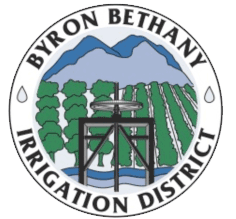Sacramento, CA (February 23, 2022) – On the heels of record-low precipitation in January and February, the U.S. Bureau of Reclamation (Reclamation) issued an initial water supply allocation of 0% for South-of-Delta Central Valley Project (CVP) contractors, including the Byron-Bethany Irrigation District (BBID).
Exceptionally dry conditions have returned to the Sierra after record snowfall in late fall and early winter. The statewide snowpack is dwindling, CVP reservoirs are low, and the long-range forecast promises little relief.
“The allocation announcement is disappointing because it represents another significant challenge for our growers in the District’s CVP Service Area,” said BBID Board President Russell Kagehiro. “We understand Reclamation is constrained not only by Mother Nature, but by regulatory obligations imposed by the State Water Resources Control Board that we believe disproportionally and ineffectively prioritize the needs of the environment over our state’s food supply.”
“This is the fourth time in the last decade that South-of-Delta CVP contractors have received a 0% allocation,” said BBID General Manager Rick Gilmore. “As we have said time and again, the lack of available water during times of drought underscores the need to invest in our aging water systems and enact collaborative policy to ensure a sustainable water supply. If this is our new normal, we must adapt.”
The District is joining its local, regional and state partners in exploring regulatory solutions that balance the needs of California’s cities, agriculture and environment, while simultaneously pursuing additional water supplies for growers in BBID’s CVP Service Area.
Reclamation also announced an initial 25% allocation for its South-of-Delta Municipal and Industry (M&I) contractors, including those in the BBID’s service area. Reclamation will continue to evaluate hydrologic conditions as the year progresses and may announce changes as conditions warrant.
